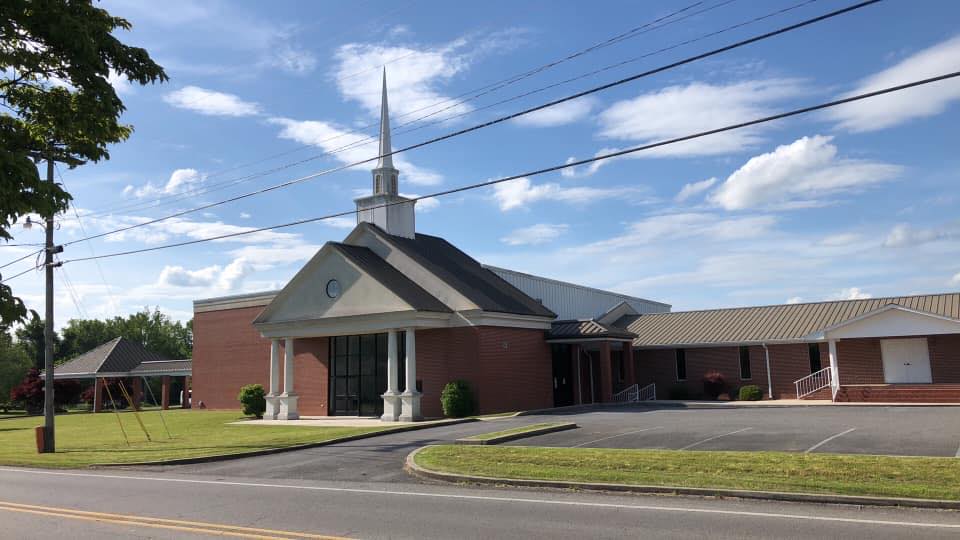David Eldridge, pastor of Dawson Memorial Baptist Church in Birmingham, said the essential thing for pastors is the “care of the soul.”
“We can be so busy in doing the Lord’s work that we neglect to spend time with the Lord,” he said. “Like Martha, the sister of Lazarus, we can be ‘busy inside the kitchen’ and neglect sitting at the feet of Jesus as Mary chose to do.”
Eldridge was one of two presenters for the “Intentional Leaders” series Sept. 17 at the Alabama Baptist State Board of Missions facility in Prattville. State missionaries Ken Allen and Rob Jackson served as hosts.
Eldridge didn’t disparage the work that Martha did since both Jesus and the disciples enjoyed the meal she prepared for them. But he said the “gentle admonition” from Jesus is one pastors must hear.
‘Vocational hazard’
“An inherent vocational hazard in ministry is neglecting our own Bible study and prayer life,” he said.
“Of course we study every week for Sunday’s sermon, but we must study the Bible for our own growth as well. An associate reported that pastor (and author) A.W. Tozer removed his suit in his church office and had ‘prayer pants’ that he changed into, and these pants were worn at the knees.”
‘Check engine lights’
Eldridge said he tries to take some hours each week in solitude — not to reflect on his sermon but to commune with God.
“We retreat not for work but for ourselves,” he said.
“And you don’t have to retreat far away. I’ve found local parks are good places to go to spend time with God.”
In a later session Eldridge talked about “check engine lights” that signal warnings in church ministry. One is what he called “sermonic shortcuts” or “microwave sermons.”
“The temptation in busy times is to pull out an old message and reheat it or even to plagiarize someone else’s work,” he said. “Of course we learn from others, but Phillips Brooks reminded us that sermons are ‘truth through personality.’ We must digest truth and share it from our hearts every week. This requires time.”
‘Greener pastures syndrome’
He said another “check engine light” is the “greener pastures syndrome” in which a pastor is always looking for “bigger and better” places to serve.
“I know sometimes we’re sensitive to a need to move, but we must commit to where we are and do God’s work for as long as God allows,” he said.
Another warning sign is a critical spirit. Eldridge said it’s easy for a pastor to criticize in return those who criticize them or who leave the church for various reasons.
“Others can hurt us, but the pastor’s job is to love them and not degenerate into categorizing those ‘for me’ and those ‘against me,’” he said.
“We live in ‘eschatological hope,’ knowing that God can make things better. We must never be like Charles Schultz’s character Pigpen who had a dust cloud around him wherever he went!”
‘Soul sickness’
Eric Hankins, pastor of First Baptist Church Fairhope, talked about “soul sickness” that is often accompanied by an attitude of contempt.
“We live in a society of contempt fueled by cable news and social media,” he said. “So many are condescending and critical of others. I think pastors must work hard to avoid negative statements such as, ‘They’re never going to change,’ or ‘Nothing can be done.’ We must never conclude that a person or circumstance is irredeemable; we must pay attention to opportunities for redemption.”
Hankins said an attitude of contempt manifests itself with stubbornness, self-justification and the need to be in control.
“Jesus’ ministry can be summarized in three words: truth, love and courage,” he said. “He’s our model in all things.”
In his second session Hankins suggested pastors must help congregations choose deacons who are qualified, trained, supportive and celebrated.
“We should praise them publicly for their good work and let people recognize the contribution they make,” he said.
Hankins also said church staff members should lead together, and job descriptions and annual reviews are a must.
“A church is no more unified than its staff,” he said. “I try to befriend our staff and defend them from criticism. We must remember that when people come to us with criticism, they never tell us both sides of an issue but only their side!”
Quality time for family
In the Q&A session both pastors reflected on making quality time for family despite the demands of ministry.
“James Dobson taught me that our children don’t have to be like us, and we should give them freedom to be themselves,” Hankins said. “This helped me tremendously as a parent.”
The men also reflected on the need for pastors to read widely.
Eldridge noted that ministers have more options today with audiobooks and podcasts and can make use of discretionary or drive time.
Hankins agreed, and added, “Even if you don’t like to read, you’ve got to read!”
The “Intentional Leader” series — concluding its second year — will continue in 2025 with four sessions. More information is available at the SBOM Office of LeaderCare. The office telephone is 800-264-1225, Ext. 2210. The website is leadercareal.org.






Share with others: